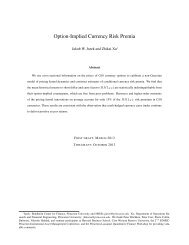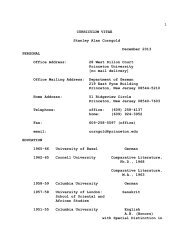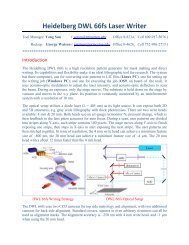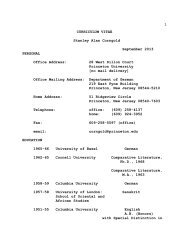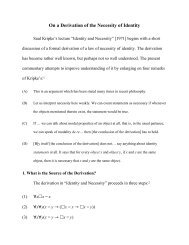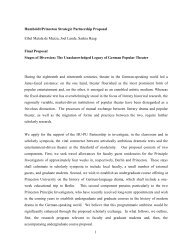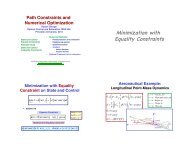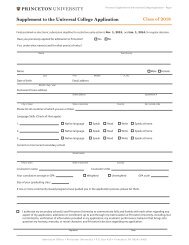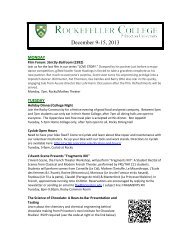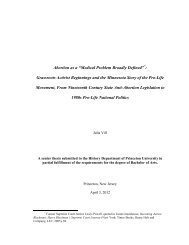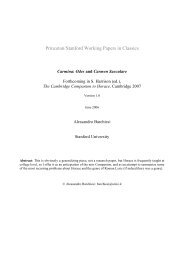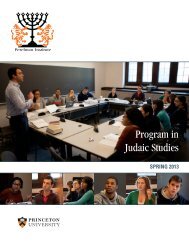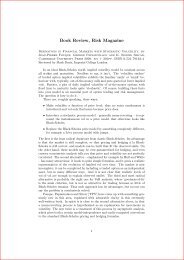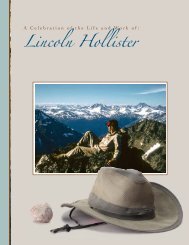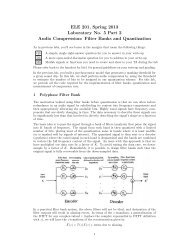George Larkin and the London literary underground 1666-1690 ...
George Larkin and the London literary underground 1666-1690 ...
George Larkin and the London literary underground 1666-1690 ...
You also want an ePaper? Increase the reach of your titles
YUMPU automatically turns print PDFs into web optimized ePapers that Google loves.
© Martin Dzelzainis 2<br />
censorship at precisely <strong>the</strong> point when some of <strong>the</strong> categories we now regard as crucial to<br />
such an account – <strong>the</strong> author <strong>and</strong> <strong>the</strong> state – were in <strong>the</strong> process of being developed <strong>and</strong><br />
articulated. In short, <strong>the</strong> book addresses <strong>the</strong> question of why <strong>the</strong> restored monarchy proved<br />
unable to institute what Henri-Jean Martin calls a ‘typographical absolutism’ of <strong>the</strong> kind<br />
associated with Richelieu <strong>and</strong> Colbert. 3<br />
The chapter in <strong>the</strong> book on <strong>the</strong> role of printers in <strong>the</strong> production <strong>and</strong> distribution of<br />
seditious texts of course discusses <strong>the</strong> three who were executed in <strong>the</strong> second half of <strong>the</strong><br />
seventeenth century: John Twyn (1664), William Disney (1685), <strong>and</strong> William Anderton<br />
(1693). The case of Anderton, who was executed for printing two Jacobite texts, is<br />
particularly damaging to <strong>the</strong> whiggish assumption that <strong>the</strong> Williamite regime of <strong>the</strong> <strong>1690</strong>s<br />
was somehow more benign in its intentions towards <strong>the</strong> press than its predecessors. But <strong>the</strong>se<br />
are relatively uncomplicated cases, which is why I’m interested in <strong>George</strong> <strong>Larkin</strong> (c.1642-<br />
1707), a printer, bookseller <strong>and</strong> author who has been overlooked in st<strong>and</strong>ard accounts of <strong>the</strong><br />
<strong>London</strong> <strong>literary</strong> <strong>underground</strong>. He does not feature in Neil Keeble’s Literary culture of<br />
nonconformity, or <strong>the</strong> DNB or, more surprisingly, <strong>the</strong> Biographical dictionary of British<br />
radicals in <strong>the</strong> seventeenth century, edited by Greaves <strong>and</strong> Zaller. Yet even a glance at <strong>the</strong> list<br />
of works he printed – from John Bunyan’s Grace abounding (<strong>1666</strong>) to Henry Care’s<br />
Animadversions upon mijn heer Fagels letter (1688) – suggests that he should be considered<br />
alongside <strong>the</strong> likes of John Darby or Francis Smith. An account of <strong>Larkin</strong>’s activities in <strong>the</strong><br />
1660s, 1670s, <strong>and</strong> 1680s in fact encapsulates <strong>the</strong> major turning-points in <strong>the</strong> development of<br />
print culture under <strong>the</strong> later Stuarts. At <strong>the</strong> same time, his career calls into question our notion<br />
of what a seventeenth-century British radical was like – if such an animal ever existed.<br />
We should remember, as my epigraph from Lord Byron makes clear, that ‘radical’<br />
was a term which did not even enter <strong>the</strong> ‘political vocabulary’ until <strong>the</strong> nineteenth century. To<br />
describe any early-modern person as a radical is thus to run <strong>the</strong> risk of gross anachronism. We<br />
need to bear in mind at all times our propensity to convert <strong>the</strong> past ‘into a version of present<br />
verities’. O<strong>the</strong>rwise, as Conal Condren has remarked, history does indeed become a pack of<br />
tricks we play upon <strong>the</strong> dead. 4 Richard Greaves concedes <strong>the</strong> terminology is anachronistic but<br />
insists it is useful for historians, providing care is taken not to ‘read back modern notions of<br />
“radicalism” into <strong>the</strong> age of Charles II <strong>and</strong> James II’. But in that that case, what does Greaves<br />
mean by <strong>the</strong> term? It certainly involves much more than dissent from <strong>the</strong> powers that be: ‘<strong>the</strong><br />
mere act of opposing a regime is not enough to make one a radical; <strong>the</strong> advocacy or<br />
implementation of revolutionary goals is <strong>the</strong> determining factor’. Radicals were those ‘who<br />
3 Henri-Jean Martin, The French Book: Religion, Absolutism, <strong>and</strong> Readership, 1585-1715, trans. by<br />
Paul Saenger <strong>and</strong> Nadine Saenger (Baltimore <strong>and</strong> <strong>London</strong>, 1996), p. 37.<br />
4 Condren, ‘Radicals , conservatives <strong>and</strong> moderates’, 527-8.



